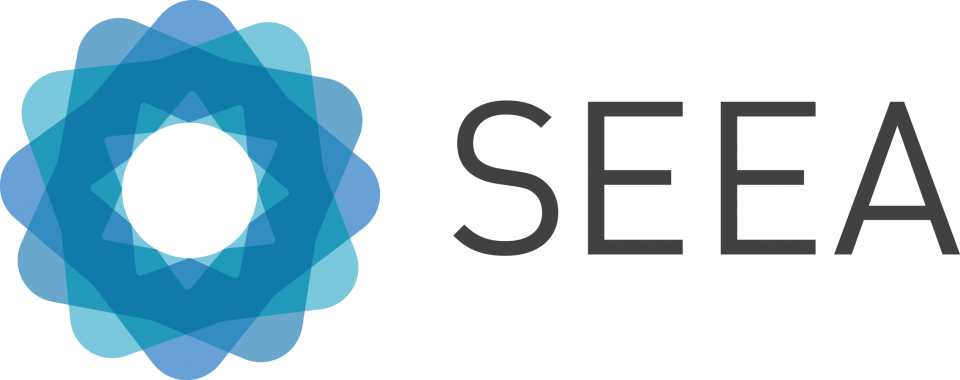Resource Corner SEEA News and Notes: Issue No. 12

In this issue, find the report of the High Level Panel for Sustainable Ocean Economy, a new article on linking biodiversity into national economic accounts, a sustainability scorecard for crop provision in Europe, new SEEA Water accounts in Peru and more.
Enhance Natural Capital Accounting Policy Uptake and Relevance
The Enhance Natural Capital Accounting Policy Uptake and Relevance (EnhaNCA) project aims to provide materials to increase policymakers' understanding of applications of natural capital accounting (NCA) according to the System of Environmental-Economic Accounting (SEEA). The results of the project is a series of four publications on how natural capital accounting integrates policies.
Read the publications on the project webpage.
Building Forward: Investing in a Resilient Economy
This report by the Wealth Economy team of the Bennet Institute for Public Policy, University of Cambridge, focuses on the practical, immediate policy lessons emerging from a wealth accounting approach. The pandemic, alongside mounting evidence of the consequences of climate and biodiversity crises, has opened many people’s eyes to the fact that this is a fork in the road. Building back is not the challenge; it is Building Forward to something better.
The report is available here: https://seea.un.org/content/building-forward-investing-resilient-recovery
Ocean Solutions That Benefit People, Nature and the Economy
The High Level Panel for a Sustainable Ocean Economy (Ocean Panel) is a unique initiative by 14 world leaders who are building momentum for a sustainable ocean economy. This work has been commissioned as an input to the Ocean Panel. The report builds on the latest scientific research, analyses and debates from around the world—including the insights from 16 Blue Papers and 3 special reports commissioned by the Ocean Panel. Included in the report are more holistic ways to account for the ocean, including the SEEA and the development of national ocean accounts.
https://seea.un.org/content/ocean-solutions-benefit-people-nature-and-economy
Peru releases SEEA -Water 2018
The National Water Authority of Peru (ANA, for its Spanish acronym) published its first water accounts, following the SEEA framework. The accounts provide information on water supply, water use and abstraction by the population for different productive activities, as well as a means to account for depletion and degradation of natural capital by its use and develop indicators that measuring progress regarding water management.
The report is available here: http://repositorio.ana.gob.pe/handle/20.500.12543/4705?show=full.
BPS (Statistics Indonesia) releases the compilation of SEEA accounts in the report Integrated System of Environmental-Economic Accounts of Indonesia, 2015-2019
This publication, titled “Integrated System of Environmental-Economic Accounts of Indonesia (Sisnerling)”, i s provides overview of the impact of development on the sustainability of natural resources and their role of in economic activity. This publication contains studies on SEEA accounts which consist of land cover account in Sumatra, Java, Kalimantan, Sulawesi, Bali and Nusa Tenggara, Maluku, and Papua; asset accounts of energy, mineral, and timber resources; and estimates of GDP-adjusted depletion of timber resources and some mineral and energy reserves in Indonesia, which are summarized in the physical and monetary accounts.
s provides overview of the impact of development on the sustainability of natural resources and their role of in economic activity. This publication contains studies on SEEA accounts which consist of land cover account in Sumatra, Java, Kalimantan, Sulawesi, Bali and Nusa Tenggara, Maluku, and Papua; asset accounts of energy, mineral, and timber resources; and estimates of GDP-adjusted depletion of timber resources and some mineral and energy reserves in Indonesia, which are summarized in the physical and monetary accounts.
Read more here: https://www.bps.go.id/publication/2020/12/11/14174cddb699198c16235d11/sistem-terintegrasi-neraca-lingkungan-dan-ekonomi-indonesia-2015-2019.html
Monitoring Greenhouse Gas Transfers: Focusing on transfers related to fossil fuel for monitoring Agenda 2030 and SEEA (Statistics Sweden)
Statistics Sweden published a new report describing a method for measuring transfers and using data that is already in the SEEA, such as emissions, energy use and taxes. Sustainable Consumption and Production (SCP) is an integral part of the 2030 Agenda for Sustainable Development. Monitoring SCP will require a set of indicators that measures the shift in consumption and production patterns, among them the indicator on fossil fuel subsidies. This report constitutes an initial proposal to support the monitoring of fossil fuel subsidies related targets of the SDGs, using the SEEA.
Read more here: https://www.scb.se/contentassets/f6eddbfd7acf43e7a486056912d50b5e/mi1301_2018a01_br_mi71br2001.pdf
Linking biodiversity into national economic accounting
Biodiversity underpins the supply of ecosystem services essential for well-being and economic development, yet biodiversity loss continues at a substantial rate. Linking biodiversity indicators with national economic accounts provides a means of mainstreaming biodiversity into economic planning and monitoring processes. This article examines the various strategies for biodiversity indicators to be linked into national economic accounts, specifically the System of Environmental-Economic Accounts Experimental Ecosystem Accounting (SEEA EEA) framework. The authors also present what has been achieved in practice, using various case studies from across the world.
Read more here: https://seea.un.org/content/linking-biodiversity-national-economic-accounting
A sustainability scoreboard for crop provision in Europe
The article is the result of a joint FAO and JRC effort to quantify and account for ecosystem contribution (using FAOSTAT and EUROSTAT data) to crop provision ecosystem services, in line with SEEA standards, and further elaborates a scoreboard indicator for its sustainability. Results highlight the role and the importance of ecosystems and their contribution by raw and processed commodities to the GDP of European countries as well as the nutritional weight of the selected crops at country level.
The article is available on line at: https://www.sciencedirect.com/science/article/pii/S2212041620301364?dgcid=rss_sd_all
Progress, Challenges, and Opportunities for Sustainability Science: A Workshop
The National Academies of Sciences, Engineering, and Medicine convened a virtual public workshop, Progress, Challenges, and Opportunities for Sustainability Science on November 30, December 1, and December 2, 2020 (Monday, Tuesday, and Wednesday).
The workshop reviewed the state of cutting edge research that can help societies meet the goals of sustainable development and aimed at providing scientific input to the ongoing discussions of the National Academy of Sciences (NAS) Grand Challenges in Science initiative and to the Nobel Prize Summit “Our Planet, Our Future” that will be held in Spring 2021.
Video and presentations of the workshop: https://www.nationalacademies.org/event/11-30-2020/progress-challenges-and-opportunities-for-sustainability-science-a-workshop
